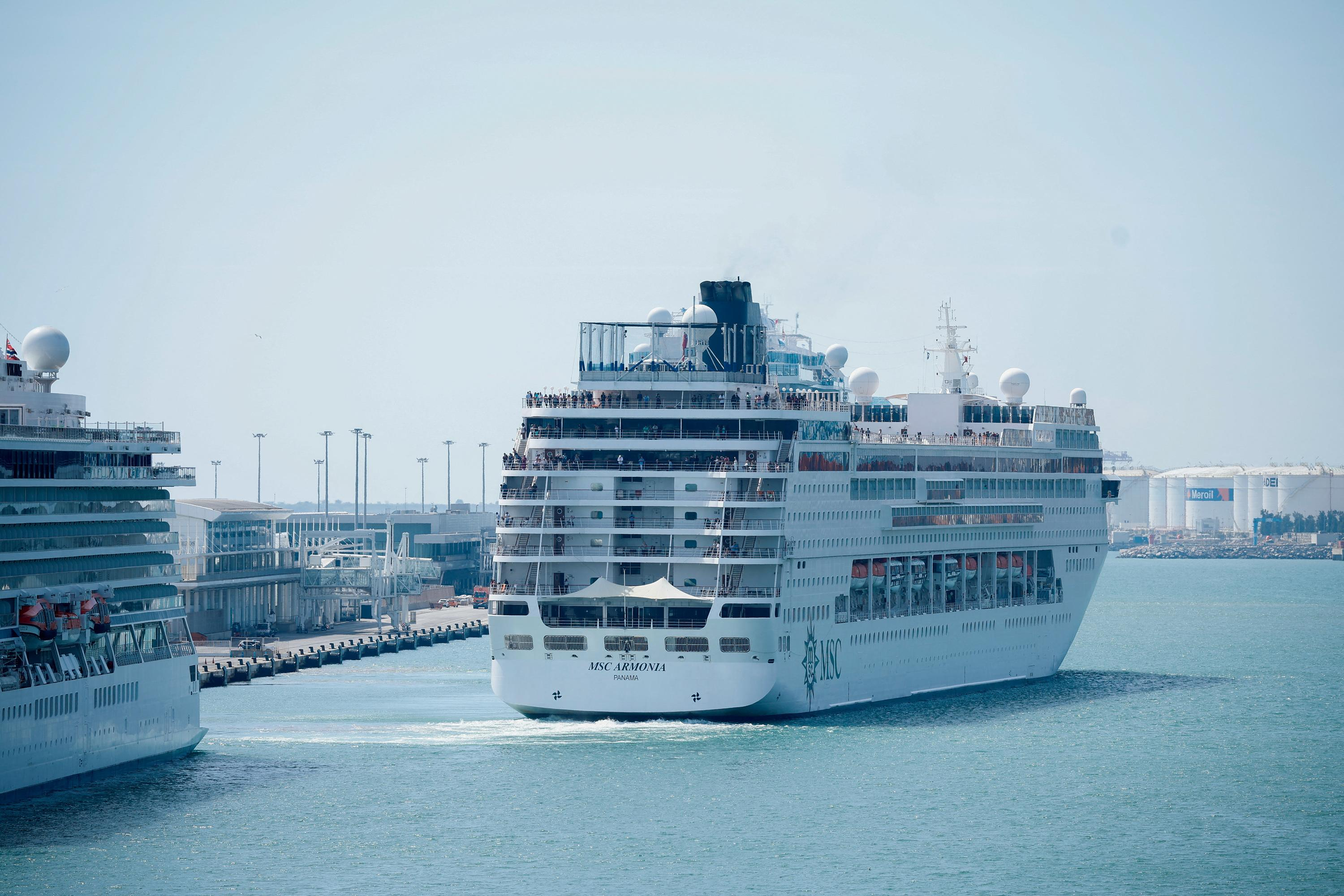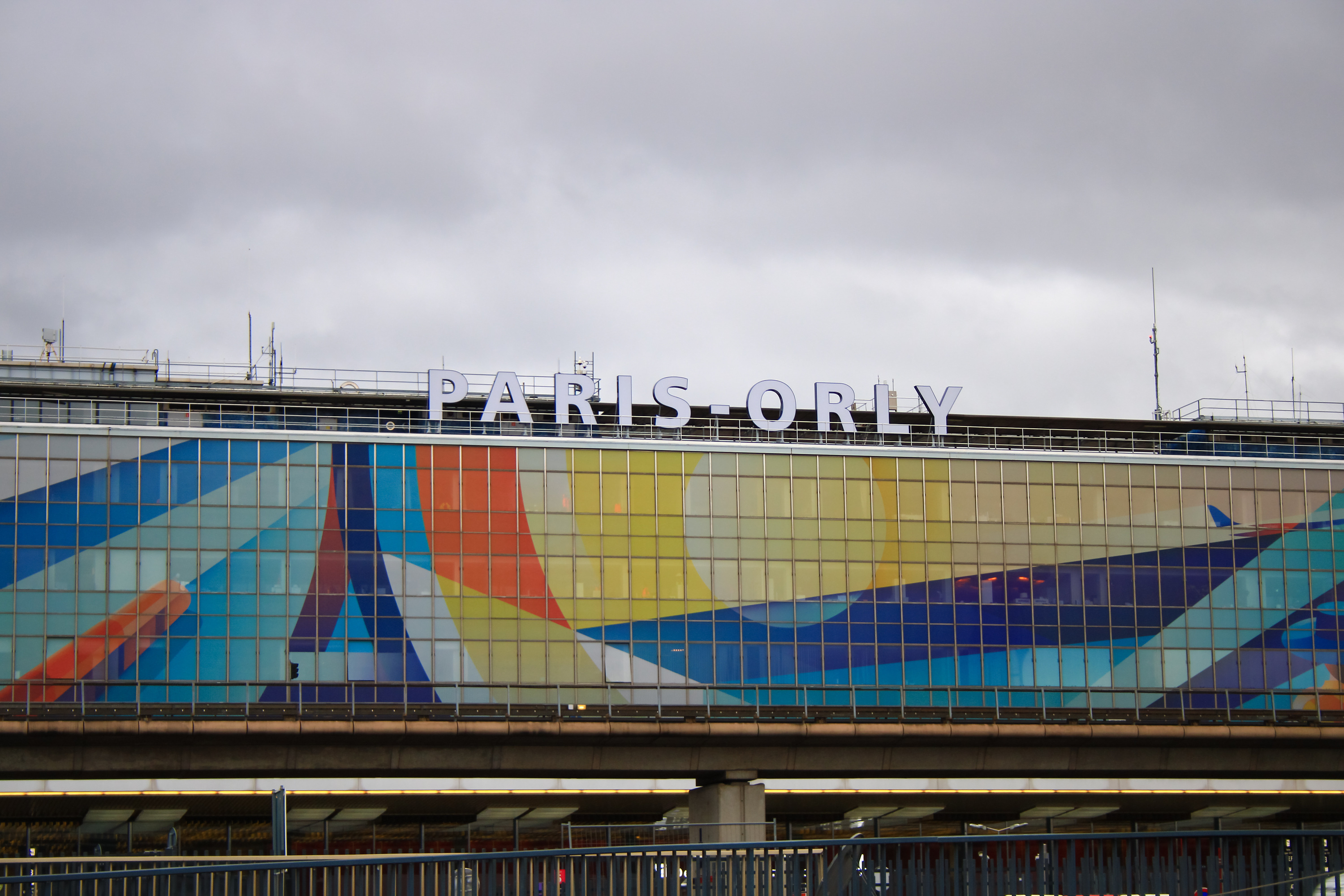Why do East and West Germans see the Russian invasion of Ukraine so differently? Following Jessy Wellmer's personal report "Russia, Putin and we East Germans", the ARD presenter discussed the indulgence of many East Germans with Russia on "Hart aber fair". As further guests, Frank Plasberg welcomed the publicist Ralf Fücks (Greens), the non-fiction authors Antje Hermenau ("Views from Central Europe: How Saxons see the world") and Stefan Creuzberger ("The German-Russian Century") as well as the former boxer Henry Mask.
Right from the start, Wellmer emphasized her “mediating role”, which continued solely through her position at the studio table between two East and West German fellow discussants. After her film, she feels "hopeful" because she can open the "conversation channel" that was on the verge of closing. Her view of the war as a "crime" was "crystal clear". She wants to understand why certain East Germans "tick the way they tick". However, their empathy ends when people “negotiate democracy and dictatorship on an equal footing” or claim that the United States controls Germany.
Ralf Fücks attributed the "enemy image USA" of many East Germans to childhood imprints of the older generation. As a former member of the Communist League of West Germany, he himself experienced "that you have to shed your skin". Through his election to the Bremen Parliament, he learned to appreciate parliamentary democracy. It irritates him today that some people perceive "Russia as a force for peace or as a force for progress". "You have to close both eyes to reality."
To a certain extent, Antje Hermenau took on this role. Although she thinks the war is "completely wrong", she would like to "think through" the sanctions. "Who is going to rebuild Ukraine afterward if we smugly throw ourselves at each other's swords?" she explained, irritating her neighbors with the question: "Where does this abysmal hatred of our management and top staff come from when they at least in the spring talk about Russia and Putin?” Other “hate tirades”, such as those responsible for the Yemen war, also deserved that.
Stefan Creuzberger and Jessy Wellmer raised the widespread pro-Russian attitude in East Germany to a “generational problem”. When the self-declared “half-Swabian” talks to his students in Rostock, he doesn't see a problem. His generation, on the other hand, will be caught up again by the mutual "history shaping" in West and East. Wellmer qualified that she knows younger people "who take on the pain, the wounds of the parents" and also remain in the victim role.
"I'm one of the winners of this unity," emphasized Henry Maske, but at the same time reiterated the economic inequality between West and East, which is no small thing. Frank Plasberg supported his guest with a clip. According to this, people in East Germany earn 22% less than in the West and own 52% less wealth. The historian Creuzberger underscored the "structurally weak areas" that had been left to their own devices. Hermenau's depiction of the East went too far: "Stop with this victim talk. It's really annoying."
The former member of the Saxon state parliament appeared at a demonstration in Grimma under the motto "Energy instead of ideology". There she had whispered, among other things, about the reintroduction of a shooting command, which she put into perspective in the studio. Fücks countered Hermenau with an impassioned counter-speech: "It is a responsibility of people like you not to feed this resentment against parliamentary democracy and sometimes to oppose it". Wellmer also complained that the author "worked into the skepticism, the uncertainty" of the Saxons.
Frank Plasberg finally carried out the reconciliation of East and West in the somewhat antiquated tradition of the final round question. With whom from the round could the discussion participants imagine a one-month role reversal? Creuzberger was tempted to step into Henry Maske's shoes, prompting the presenter to boast of the former boxer's remarkably low body fat percentage. "In this respect, everyone would like to swap masks with Henry," Wellmer replied. So the disunited group still found an unreservedly praiseworthy Eastern role model.

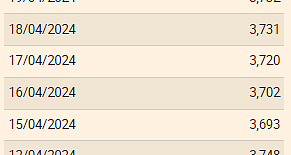 The Euribor today remains at 3.734%
The Euribor today remains at 3.734% Germany: the trial of an AfD leader, accused of chanting a Nazi slogan, resumes this Tuesday
Germany: the trial of an AfD leader, accused of chanting a Nazi slogan, resumes this Tuesday New York: at Columbia University, the anti-Semitic drift of pro-Palestinian demonstrations
New York: at Columbia University, the anti-Semitic drift of pro-Palestinian demonstrations What is Akila, the mission in which the Charles de Gaulle is participating under NATO command?
What is Akila, the mission in which the Charles de Gaulle is participating under NATO command? What High Blood Pressure Does to Your Body (And Why It Should Be Treated)
What High Blood Pressure Does to Your Body (And Why It Should Be Treated) Vaccination in France has progressed in 2023, rejoices Public Health France
Vaccination in France has progressed in 2023, rejoices Public Health France Food additives suspected of promoting cardiovascular diseases
Food additives suspected of promoting cardiovascular diseases “Even morphine doesn’t work”: Léane, 17, victim of the adverse effects of an antibiotic
“Even morphine doesn’t work”: Léane, 17, victim of the adverse effects of an antibiotic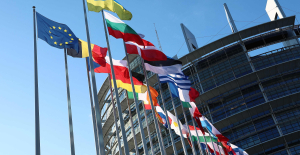 MEPs validate reform of EU budgetary rules
MEPs validate reform of EU budgetary rules “Public Transport Paris 2024”, the application for Olympic Games spectators, is available
“Public Transport Paris 2024”, the application for Olympic Games spectators, is available Spotify goes green in the first quarter and sees its number of paying subscribers increase
Spotify goes green in the first quarter and sees its number of paying subscribers increase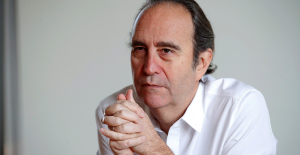 Xavier Niel finalizes the sale of his shares in the Le Monde group to an independent fund
Xavier Niel finalizes the sale of his shares in the Le Monde group to an independent fund Owner of Blondie and Shakira catalogs in favor of $1.5 billion offer
Owner of Blondie and Shakira catalogs in favor of $1.5 billion offer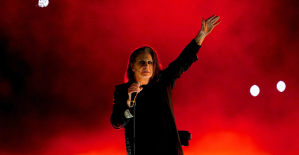 Cher et Ozzy Osbourne rejoignent le Rock and Roll Hall of Fame
Cher et Ozzy Osbourne rejoignent le Rock and Roll Hall of Fame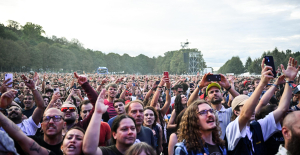 Three months before the Olympic Games, festivals and concert halls fear paying the price
Three months before the Olympic Games, festivals and concert halls fear paying the price With Brigitte Macron, Aya Nakamura sows new clues about her participation in the Olympics
With Brigitte Macron, Aya Nakamura sows new clues about her participation in the Olympics Skoda Kodiaq 2024: a 'beast' plug-in hybrid SUV
Skoda Kodiaq 2024: a 'beast' plug-in hybrid SUV Tesla launches a new Model Y with 600 km of autonomy at a "more accessible price"
Tesla launches a new Model Y with 600 km of autonomy at a "more accessible price" The 10 best-selling cars in March 2024 in Spain: sales fall due to Easter
The 10 best-selling cars in March 2024 in Spain: sales fall due to Easter A private jet company buys more than 100 flying cars
A private jet company buys more than 100 flying cars This is how housing prices have changed in Spain in the last decade
This is how housing prices have changed in Spain in the last decade The home mortgage firm drops 10% in January and interest soars to 3.46%
The home mortgage firm drops 10% in January and interest soars to 3.46% The jewel of the Rocío de Nagüeles urbanization: a dream villa in Marbella
The jewel of the Rocío de Nagüeles urbanization: a dream villa in Marbella Rental prices grow by 7.3% in February: where does it go up and where does it go down?
Rental prices grow by 7.3% in February: where does it go up and where does it go down? Europeans: “All those who claim that we don’t need Europe are liars”, criticizes Bayrou
Europeans: “All those who claim that we don’t need Europe are liars”, criticizes Bayrou With the promise of a “real burst of authority”, Gabriel Attal provokes the ire of the opposition
With the promise of a “real burst of authority”, Gabriel Attal provokes the ire of the opposition Europeans: the schedule of debates to follow between now and June 9
Europeans: the schedule of debates to follow between now and June 9 Europeans: “In France, there is a left and there is a right,” assures Bellamy
Europeans: “In France, there is a left and there is a right,” assures Bellamy These French cities that will boycott the World Cup in Qatar
These French cities that will boycott the World Cup in Qatar Serie A: Bologna surprises AS Rome in the race for the C1
Serie A: Bologna surprises AS Rome in the race for the C1 Serie A: Marcus Thuram king of Italy, end of the debate for the position of number 9 with the Blues?
Serie A: Marcus Thuram king of Italy, end of the debate for the position of number 9 with the Blues? Milan AC-Inter Milan: Thuram and Pavard impeccable, Hernandez helpless… The tops and flops of the derby
Milan AC-Inter Milan: Thuram and Pavard impeccable, Hernandez helpless… The tops and flops of the derby Ligue 2: Auxerre leader, Bordeaux in crisis, play-offs... 5 questions about an exciting end of the season
Ligue 2: Auxerre leader, Bordeaux in crisis, play-offs... 5 questions about an exciting end of the season




